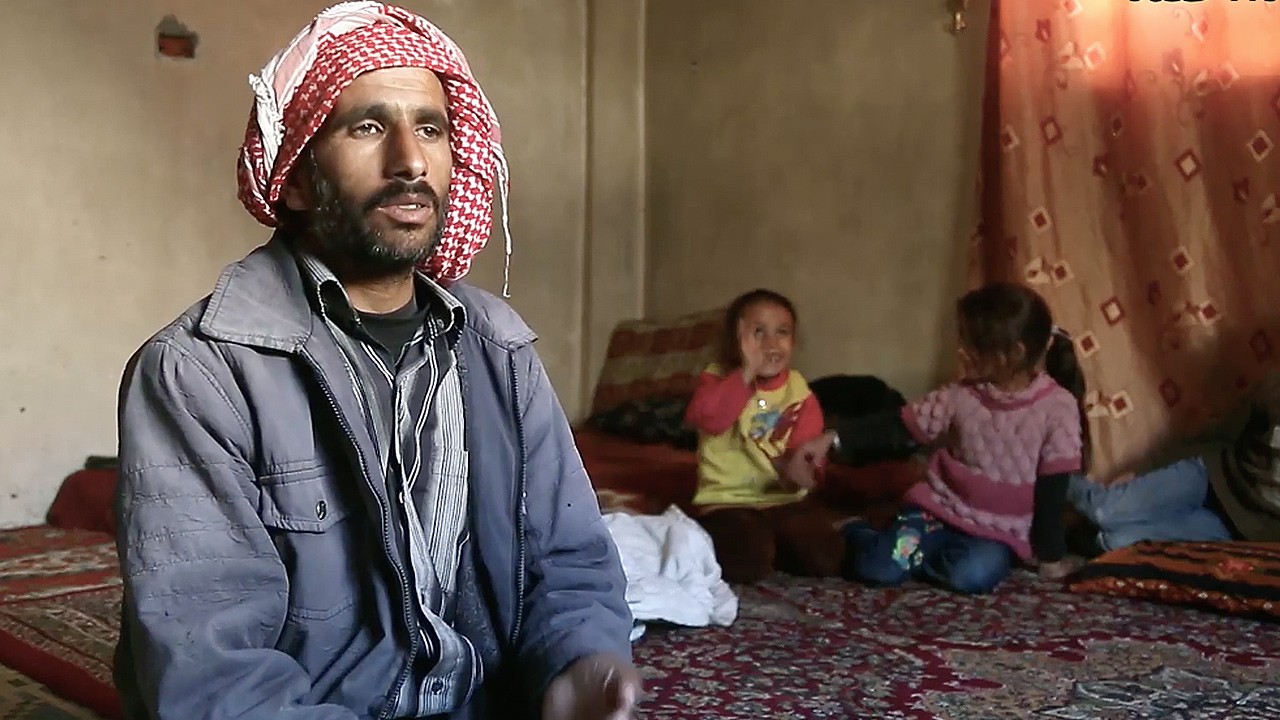President Donald Trump announced U.S. airstrikes on Syrian chemical weapons facilities Friday evening.Trump’s decision, backed by allies France and the U.K., follows days of deliberation over how to respond to the Syrian regime’s use of chemical weapons against rebels in a suburb of the country’s capital, Damascus.Initial reports described explosions and plumes of smoke rising outside Damascus, Reuters reported.Trump’s announcement came with a message to Syria’s two main foreign backers, Russia and Iran, to be careful of the company they keep. Both countries have helped prop up the dictatorship of Syrian President Bashar al-Assad.Read: Trump launches “precision strikes” on Syria after chemical attacksNow, Trump’s decision to use force pushes him and his team against a cold reality, analysts said: Despite America’s overwhelming military might, the man holding all the best cards in Syria is still Russian President Vladimir Putin.The Russian military is dug in deep in Syria, where years of its support has helped solidify dictator Bashar Assad’s grip on power. In a country where U.S. policy has been confused and contradictory, Russia has been single-mindedly focused on keeping Assad in power, analysts said, making any U.S. attack either unnecessarily risky or not strong enough.Earlier this week, Trump taunted Russia on twitter with a message saying American missiles were coming.“Short of starting an actual war, Putin has the advantage,” said Ilan Goldenberg, a U.S. State Department official under President Barack Obama. “Trump basically dared the Russians to respond with this incredibly irresponsible tweet. We have a lot more firepower, but do we really want to get into an all-out war with them? No.”It’s the second time in little over a year that the Trump administration has launched missiles at Syria in response to the use of chemical weapons.The last time Trump waded into the Syrian conflict was in April 2017, launching 59 Tomahawk missiles at Syria’s Shayrat Airbase to deter Assad from using chemical weapons again. But clearly that message wasn’t received: reports of chemical weapons attacks have continued to surface. In order to get Assad and his partners’ attention, he’ll have to do more and be more consistent, analysts said.But with greater military involvement comes greater risk, especially in a conflict that remains complicated and chaotic."I’m terrified of the whole situation at this point,” Goldenberg said. “As someone who supported a more interventionist policy of Syria for years, I have to say, that ship has sailed."It is unclear how the Trump administration can thread the needle between a symbolic, one-off strike, and all-out war with Russia. Analysts, therefore, have generally expected the U.S. to err on the side of a small, limited attack.Read: Trump wants to send Assad a message — but his options are all badBut that too comes with its own set of risks. Putin may simply be able to claim victory in a limited missile duel by just keeping some American Tomahawks from reaching their Syrian targets, analysts told VICE News before the strikes were announced.Russia’s ambassador to Lebanon was quoted this week saying Russia would respond to any U.S. strike on Syria by shooting down U.S. missiles.“The West is stronger, but also more risk-averse, and Putin knows that,” said Anna Borshchevskaya, who specializes in Russia’s role in the Middle East at the Washington Institute for Near East Studies. “Putin puts the West into positions where it has to either take risks or back down. He perceives, correctly, that the West is afraid to act, and he uses that.”What’s more, being seen as standing toe-to-toe with the United States in a military conflict would play to Putin’s domestic image as a powerful world leader standing up to aggressive Western powers, analysts said. Russia’s economic growth has been sluggish, and recent U.S. sanctions have wreaked havoc in Russian financial markets, sending the country’s currency, the ruble, into a tailspin.Read: Russian markets are crashing after Trump’s Syria tweets and sanctions“An aggressive foreign policy is increasingly Putin’s source of domestic legitimacy,” Borshchevskaya said. “Putin has little else to offer domestically to the public other than the 'besieged fortress' narrative, the narrative of the West being decadent and immoral and aggressive.”Joshua Pollack, a nuclear weapons expert and editor of the Nonproliferation Review, said any direct conflict between the U.S. and Russia could quickly spin out of control.“I think it would be a disaster, an utter disaster, for U.S. and Russian military forces to engage each other,” Pollack said. “No one has worked out how to do area defense for cruise missiles yet, so this scenario means that the Russians would be coming under U.S. attack. How many missiles get through would be the last thing on anyone's mind.” Cover image: Russia's President Vladimir Putin listens during a joint news conference with Iran's President Hassan Rouhani and Turkey's President Recep Tayyip Erdoga in Ankara, Turkey, Wednesday, April 4, 2018.
Cover image: Russia's President Vladimir Putin listens during a joint news conference with Iran's President Hassan Rouhani and Turkey's President Recep Tayyip Erdoga in Ankara, Turkey, Wednesday, April 4, 2018.
Advertisement
Advertisement
Advertisement
